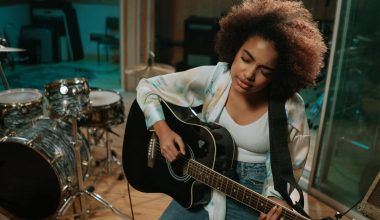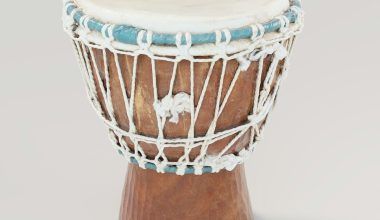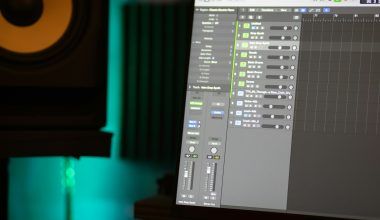Have you ever wanted to use a specific song for a project but weren’t sure how to legally secure the rights? how to buy music rights can seem like a daunting task, but it doesn’t have to be. With the right approach, you can navigate the process smoothly and use the music you love without any legal troubles. Let’s break it down step by step so you can feel confident about how to buy music rights.
Understanding Music Rights
Before jumping into the process, it’s essential to understand what music rights are. Every song has copyright protection that grants the creator exclusive rights to control its usage. These rights usually include:
- Reproduction rights: The right to copy the song.
- Performance rights: The right to play the song in public.
- Synchronization rights: The right to use the song in audiovisual projects like movies or advertisements.
- Mechanical rights: The right to distribute the song physically or digitally.
When you want to use music legally, you need to obtain permission for the specific type of usage you have in mind.
Determine Your Needs
The first step is to define why you need the music rights. Are you creating a YouTube video, launching a podcast, or making a film? Different purposes require different permissions. For example:
- A YouTube creator might need synchronization rights.
- A wedding videographer might need a blanket license to use music in multiple projects.
- An app developer might require rights for background music.
Understanding your exact need helps you know what kind of music rights to seek.
Identify the Copyright Owner
Once you’ve decided on the song, you need to find out who owns the copyright. This step is crucial because you can’t get the rights without knowing whom to ask. Typically, the copyright owner could be:
- The songwriter or composer.
- A music publisher representing the songwriter.
- A record label that owns the recording.
You can often find this information in the song’s credits or by searching databases like ASCAP, BMI, or SESAC.
Contact the Copyright Owner
After identifying the owner, reach out to them to request permission. Be clear and professional in your communication. Explain how you plan to use the song and for how long. It’s also a good idea to mention your budget upfront. If the owner agrees to your request, they’ll usually provide a license agreement.
Negotiate the Terms
Not every copyright owner will quote the same price. Some may charge a flat fee, while others might ask for a percentage of your revenue. Don’t be afraid to negotiate! Be transparent about your budget and explain why the music is vital for your project. If you’re working on a limited budget, consider asking for a one-time usage license instead of broader rights.
Understand the Costs
The cost of buying music rights can vary widely. Factors that influence the price include:
- The popularity of the song.
- The intended usage (commercial vs. non-commercial).
- The length of usage.
- The platform where it will be used.
For a lesser-known song, you might pay a few hundred dollars. For a hit song, the cost could run into thousands or even millions.
Work with a Licensing Agency
If navigating this process feels overwhelming, consider working with a music licensing agency. Agencies specialize in helping creators secure music rights and can handle everything from negotiations to contracts. Popular licensing agencies include Musicbed, Epidemic Sound, and SongFreedom.
Consider Royalty-Free Music
If buying rights to popular music seems too expensive, you can explore royalty-free music libraries. These platforms offer high-quality tracks that you can use without worrying about complicated licensing. Some excellent options include Artlist, AudioJungle, and PremiumBeat.
Finalize the Agreement
Once you’ve negotiated the terms, the copyright owner will provide a written agreement. Read it carefully to ensure all the terms are clear and fair. Look out for details like:
- The scope of usage.
- The duration of the license.
- Any restrictions on how you can use the song.
Sign the agreement only when you fully understand and agree to the terms.
Keep Records
After you’ve secured the rights, make sure to keep all documentation safe. This includes the license agreement, payment receipts, and any correspondence with the copyright owner. These records will protect you if there are any disputes in the future.
Avoid Common Pitfalls
When buying music rights, watch out for these common mistakes:
- Not clarifying usage rights: Always specify exactly how you’ll use the song.
- Ignoring renewal clauses: Some licenses have expiration dates, so be sure to renew them if needed.
- Assuming fair use applies: Using a song for a non-commercial project doesn’t automatically mean you’re covered under fair use.
Stay Updated
Music licensing laws can change, so it’s essential to stay informed. Join online communities, follow licensing agencies on social media, or subscribe to newsletters about copyright updates. Staying informed will help you avoid legal issues in the future.
Wrapping Up
how to buy music rights might seem complicated at first, but with careful planning and persistence, it’s entirely manageable. By understanding your needs, contacting the right people, and negotiating fair terms, you can use the music you love without any hassle. Whether you’re a filmmaker, content creator, or business owner, securing the proper music rights is a worthwhile investment that ensures your project shines without legal hiccups.
Take the first step today by researching the perfect track for your project and reaching out to its copyright owner. With the right music, your project can resonate with your audience in powerful ways.
For further reading, explore these related articles:
- Circles Post Malone Lyrics – A Song About Love, Loss, and Life
- Billie Eilish’s Big Moment at the Oscars 2022: A Night to Remember
For additional resources on music marketing and distribution, visit DMT Records Pvt. Ltd..






